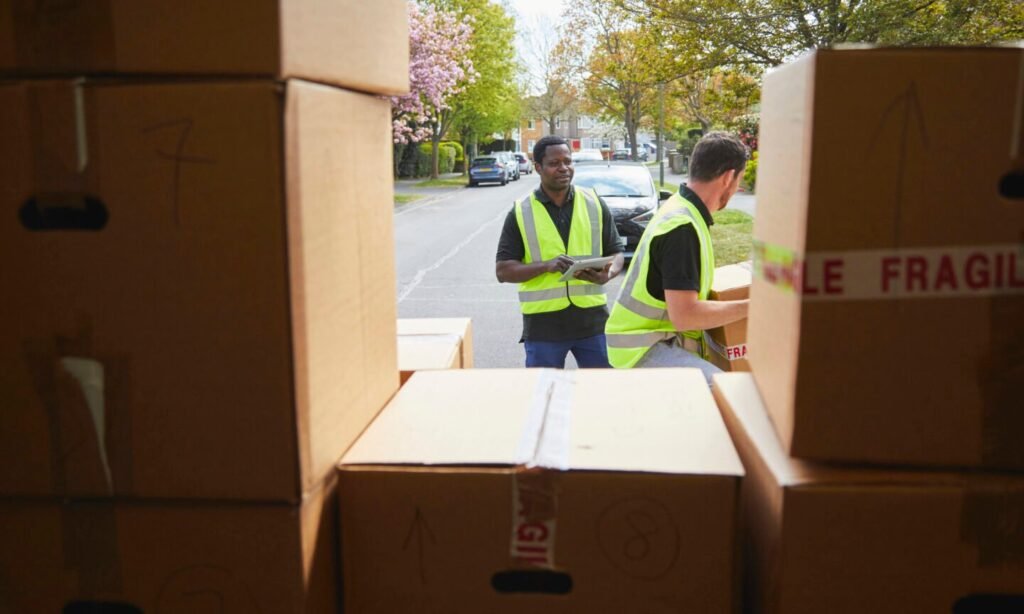Moving companies typically avoid transporting items that could be unsafe for either the item or the movers themselves. Each moving company has its own set of rules regarding what they will and will not move, but generally, they steer clear of landscaping chemicals, ammunition, plants, cleaning supplies, perishable foods, fireworks, candles, and pets. It’s also advisable not to have movers handle valuables, heirlooms, and personal documents. If you have items on the do-not-move list, consider alternative methods or decide to sell, give away, or safely dispose of them.
Here are the most common items that movers refuse to transport, the reasons behind their decisions, and what you can do instead. Movers typically do not transport living creatures such as dogs, cats, birds, reptiles, or small animals.
Why not?
Moving trucks are not safe environments for pets due to high temperatures and lack of airflow. There is also a risk of heavy items falling on them during transport. The journey in the back of a moving truck can be distressing for pets and may even lead to injury or death.
What to do instead
Consider bringing your pets along on the trip for their comfort and safety. For long-distance moves with overnight stays, look for pet-friendly accommodations along the way. If traveling with your pet is not feasible, consider hiring a professional USDA-certified pet transport service for their safe relocation.
While some local movers may agree to transport plants, it’s generally uncommon for movers to transport them.
Why not?
State laws often prohibit moving plants across state lines. Non-native plants can harm native species in the destination state. Living plants and their soil may harbor insects that could infest the moving truck. The truck’s conditions could also be detrimental to the plants’ health.
What to do instead
If driving to your new home, carefully pack your plants for the journey. For long-distance moves where transporting plants is impractical, consider gifting them to friends, family, or local institutions. Ensure responsible disposal of any plants you choose not to move.
Movers generally accept non-perishable items like canned foods and spices. However, perishable foods such as dairy products and frozen goods will not be loaded onto the truck on moving day.
Why not?
Perishable foods will not stay fresh in the truck’s environment. Spoiled food can create odors and damage the truck’s contents. Spoilage can also attract insects that may infest other items.
What to do instead
Plan ahead to minimize perishable items on moving day. For short moves, consider taking some perishables in a cooler. Donate unopened non-perishables to local food banks. If your mover participates in Move for Hunger, they can collect unwanted food for donation.
Most moving companies have restrictions on transporting firearms and ammunition. It’s best to discuss gun transport with potential movers to explore options for moving unloaded firearms.
Why not?
Transporting firearms and ammunition can be hazardous and may violate state laws. It’s important to follow state regulations and seek alternative methods for shipping firearms if necessary.
What to do instead
If your moving company does not transport firearms, arrange for a federally licensed firearms dealer to ship them to your new address.
Movers typically avoid transporting hazardous household substances, including cleaning supplies. These items are considered flammable and may pose a risk during transport.
Why not?
Hazardous substances can be flammable and may cause damage if they spill or ignite during transport. Movers prioritize safety and avoid handling these items to prevent accidents.
What to do instead
Evaluate the necessity of transporting hazardous items and consider transporting them yourself if needed. Do not attempt to conceal hazardous items in mislabeled boxes to avoid liability in case of accidents. Dispose of or gift these items responsibly if you choose not to move them.
Movers typically do not transport lawn care products due to their hazardous nature. These substances can pose risks to the moving crew, truck, and its contents.
Why not?
Lawn care products are considered hazardous and flammable, posing a danger to the moving process. To ensure safety, movers choose not to transport these items.
What to do instead
If you wish to bring these items to your new home, make arrangements to transport them yourself. Alternatively, consider gifting them to friends and family or disposing of them in an environmentally friendly manner through organizations like Earth911.com.
Ordinary wax candles are often on the list of items that movers will not transport due to the risk of melting and causing damage.
Why not?
The heat inside a moving truck can cause wax candles to melt, potentially creating a mess and damaging other items.
What to do instead
If you want to keep your candles, pack them securely in your own vehicle and ensure proper temperature control. If transporting candles is not feasible, consider giving them away or donating them to local organizations.
Fireworks are generally not transported by movers due to their flammable nature and associated risks.
Why not?
Fireworks are flammable and contain chemicals that can be hazardous during transport. They pose safety risks and may cause damage if they ignite or explode.
What to do instead
For local moves, transport fireworks yourself. For interstate moves, check state regulations for legal transportation. Consider holding a safe fireworks display or disposing of them properly if you choose not to keep them.
Certain items like important documents, valuables, and sentimental items are best kept with you during the move for their safety and security.
Here are some items you should personally carry with you:
-
Jewelry, valuables, heirlooms, and coin collections.
-
Birth certificates, passports, deeds, and other essential documents.
-
Financial, banking, and tax records.
-
Medical and dental records.
-

